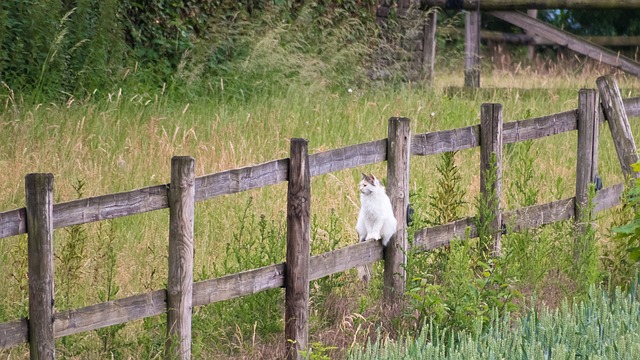In New Bedford, the demand for fencing services is diverse, ranging from residential backyard barriers to commercial property boundaries. With a focus on affordability, this guide aims to demystify the process of hiring contractors, offering valuable insights for property owners seeking quality fence solutions without breaking the bank. We’ll explore key considerations, from selecting the right contractor to understanding common materials and maintenance practices, ensuring your fencing project meets both expectations and budget.
- Understanding New Bedford's Fencing Needs
- Choosing the Right Affordable Contractor
- Key Features of Quality Fence Construction
- Common Fencing Materials and Costs
- Maintenance Tips for Long-Lasting Fences
Understanding New Bedford's Fencing Needs
New Bedford, like many communities, has diverse fencing needs tailored to its unique neighborhoods and landscapes. From residential properties seeking privacy fences to commercial spaces requiring security barriers, the city’s aesthetic and functional requirements vary widely. Understanding these needs is crucial for affordable fencing contractors. They must assess factors such as local climate, soil conditions, and architectural styles to provide suitable materials and designs.
Moreover, staying attuned to New Bedford’s regulatory landscape is essential. Fencing projects may be subject to zoning laws, building codes, and historical preservation regulations. Contractors who are well-versed in these guidelines can ensure that installations meet both community standards and client expectations for quality and affordability.
Choosing the Right Affordable Contractor
When selecting an affordable fencing contractor in New Bedford, it’s crucial to balance cost and quality. While price is a significant factor, don’t compromise on expertise and reliability. Look for contractors with proven experience, positive customer reviews, and transparent pricing structures. Ask for references and previous project portfolios to gauge their capabilities and work ethic.
Consider the type of fence you desire—wooden, vinyl, or chain-link—and ensure the contractor specializes in it. Effective communication is key; choose a contractor who listens to your needs, offers tailored solutions, and provides clear timelines and guarantees. Compare quotes from multiple contractors, but remember, the lowest price isn’t always the best deal. Choose a reputable firm that combines affordability with high-quality work and excellent customer service.
Key Features of Quality Fence Construction
When considering fence construction, several key features distinguish quality work from average. First and foremost, materials play a crucial role. High-quality fences are built with durable and long-lasting materials like treated wood or strong metal alloys. These choices ensure the fence can withstand various weather conditions, preventing rot, rust, or other forms of deterioration.
The craftsmanship involved is another critical aspect. Skilled contractors pay meticulous attention to detail, ensuring proper fitting and alignment of every panel. Strong joints and secure connections are vital to prevent warping, leaning, or easy damage. Additionally, a well-designed fence should offer both aesthetic appeal and functionality, catering to the client’s preferences while also providing privacy, security, or defining property boundaries effectively.
Common Fencing Materials and Costs
Fencing contractors often offer a variety of materials to suit different preferences and budgets. The most common fencing materials include wood, vinyl, and chain link. Wood is a popular choice for its natural aesthetics but requires regular maintenance to prevent rot and insect damage. Vinyl fences are low-maintenance alternatives that come in various colors and styles, making them an attractive option for many homeowners. Chain link fences, known for their durability and security features, are often chosen for commercial properties or backyards with children and pets.
The cost of fencing materials can significantly vary based on factors like quality, size, and style. On average, wood fences range from $20 to $40 per linear foot, vinyl fences cost around $30 to $60 per linear foot, and chain link fences are typically between $15 to $35 per linear foot, not including installation costs. It’s essential to compare quotes from different contractors to ensure you get the best value for your money.
Maintenance Tips for Long-Lasting Fences
Regular cleaning and maintenance are essential to ensure your fence remains in top condition and lasts for years to come. Start by sweeping or brushing away any debris, leaves, or grass clippings that may accumulate on the fence’s surface. Use a soft-bristled brush or a pressure washer for more stubborn dirt and stains. Avoid using harsh chemicals as they can damage the fence’s material.
Inspect your fence periodically for any signs of wear, rot, or damage. Repair small issues immediately to prevent them from becoming bigger problems. Keep an eye out for loose posts, rotted boards, or corroded hardware. Regular painting or sealing can also help protect the fence against moisture and UV rays, extending its lifespan significantly.
